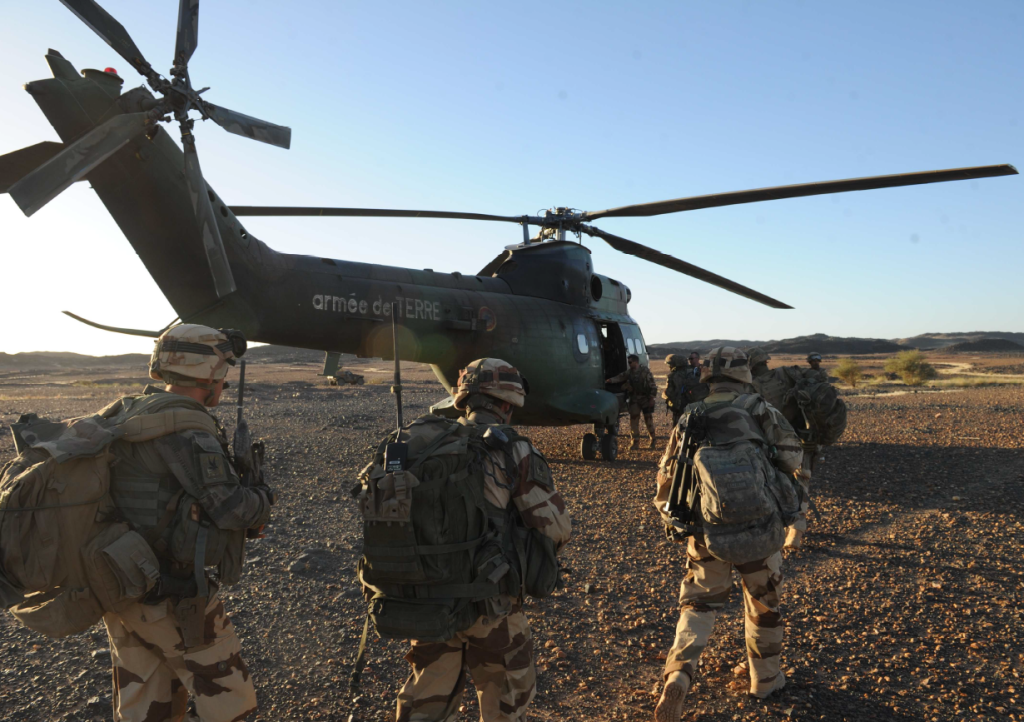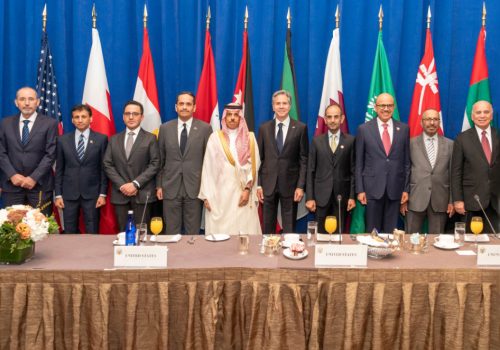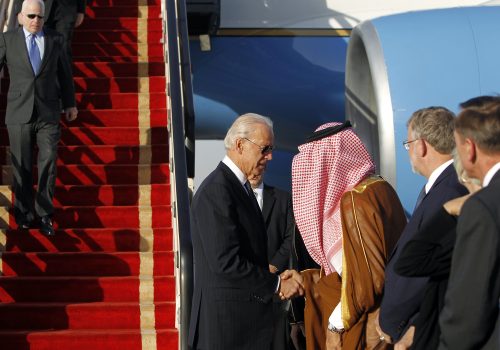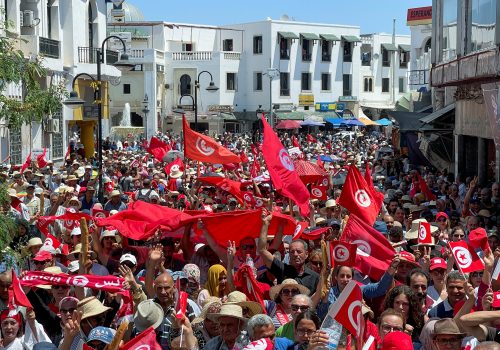Unlike with violent upheavals and wars that have recently shaken the broader Middle East and North African region, in Mali, the West—specifically Europe led by France—decided to mitigate the crisis through a long-term military engagement, though not as extensive as in Afghanistan or Iraq. European intervention in the Sahel became sort of the laboratory for a joint EU military culture before Russians contributed to the erosion of this exercise. Understanding its highs and lows is crucial not only for the ongoing discussion regarding Europe’s future posture in the region but equally for the prospective European efforts to get ready and, if needed, to secure its broader neighborhood without a US backbone.
In 2012, northern Mali was hit by the rebellion of Tuareg separatists, once again seeking the independence of the Azawad, areas inhabited by this Berber-speaking seminomadic people. The National Movement for the Liberation of Azawad (MNLA)—better prepared than in the past with an infusion of arms and personnel flowing from destabilized Libya—quickly seized northern parts of the country. However, the rebellion was soon taken over by Islamists, whose aim wasn’t independence but rather sharia law extending throughout Mali.
As Islamist insurgents were quickly advancing toward central Mali, a military coup in Bamako further weakened the government’s ability to respond. France—upon Mali’s request—decided to intervene. Its counterterrorism operation Serval, building on the successes of earlier French intervention in neighboring Mauretania, managed to stop insurgents’ advance within a few first months of 2013.
In 2014, Serval was transformed into Barkhane operation with a much broader territorial scope, covering the whole Sahel region and headquartered in N’Djamena (Chad). French ambitions went beyond Serval not only territorially, but also in terms of goals and partnership. The counterterrorism focus was progressively paired with state-building elements. At the same time, European countries were gradually stepping in alongside France. There was a “joining” momentum, especially with the 2020 establishment of the counterterrorism Takuba task force, a platform for European special forces to advise and accompany Malians on the battlefield. Europeans also were present in greater numbers within the United Nations Multidimensional Integrated Stabilization Mission in Mali (MINUSMA) and the EU Training Mission.
European momentum in Mali
At the same time, there was growing awareness that there won’t be a sustainable solution without local ownership. Sahel countries, supported by the international community, created the G5 Sahel Joint Force, involving Mauritania, Mali, Burkina Faso, Niger, and Chad. On the other hand, the Economic Community of West African States (ECOWAS) assumed a leading political role, especially when dealing with the 2020 and 2021 Mali military coups.
Mali became quite crowded and by 2020 the Sahel region contained the largest European military deployment abroad, with around eight thousand troops. Proper coordination among Europeans and other external players became a serious challenge, especially in the field of humanitarian and development aid. The challenge was smaller in the military realm, where there were established coordination formats.
Issues
After Serval’s 2013 successes, when Islamist insurgents were quickly pushed out of urban centers and the French forces were celebrated as liberators, Paris started to face difficulties. Jihadists hid in the mountains or bushes, turned to a hit-and-run approach, and things started to become ugly. This may sound familiar to those who followed US interventions in Afghanistan or Iraq.
Ill-equipped local forces, a UN peacekeeping mission with extremely restrictive rules of engagement, and only a few thousand forces within Barkhane didn’t match with the evolving insurgency, an enemy moving fast over a territory comparable in size to Western Europe.
Malians expected most of the country’s issues to be solved by Europe. The government in Bamako often didn’t cooperate enough, thus becoming part of the problem; sometimes, the government played Europeans and other donors against one another. Europeans had much less leverage on Bamako compared to, say, Americans on the government in Baghdad. The French were not able to make Bamako understand that Barkhane is about stabilization or conflict management, and that the main job should be done by Malians themselves. The result: frustrations on both sides.
French-led efforts to build a European and local coalition of forces seemed to pick up and bring some results, beginning around 2020 with the establishment of the Takuba task force, a reform of the UN MINUSMA mandate, formation of G5 forces, and an enhanced EU training mission.
It was too little, too late. Mali hurt itself with two successive military coups in August 2020 and May 2021. When the junta led by Colonel Assimi Goïta rejected the demands of the international community to stick to the political transition timetable, the relationship with France soured to the point of upending Barkhane’s presence in Mali. There’s a debate as to whether Paris could have behaved a bit more diplomatically in the aftermath of a second coup, handling putschists’ egos and offering them an appropriate off-ramp.
Russian surprise
I had a chance to visit Bamako a few weeks after the second coup in 2021. When asking Western diplomats and local officials about the Russian presence in the country during the last years, they all pointed to Moscow’s rather low profile, compared to Russia’s activities in some other African countries. And yet within a few weeks, Russia suddenly emerged as a major player, exploiting tensions between the new leadership in Bamako and the French (with their European and regional allies). Feeling the pressure from the country’s long-standing partners as they pushed for a political transition, Colonel Goïta opted to remain in power and chose Russia as a partner. In the face of a European intervention that had dragged on for years, was it naive to hope that swapping horses could bring more security? The country’s geopolitical shift added to a sense of the West’s weakening stances in developing nations—parallel to a gradual return of Moscow to the forefront of Middle East and African theaters.
If Russian military intervention in Syria was premeditated, aiming to shore up against a risk of the Assad regime crumbling, Moscow’s coup de main in Bamako was more of a coincidence. As I already hinted in an Atlantic Council blog, even Russia was probably surprised by how easily the deeply rooted French and European influence in the country evaporated by seizing local frustrations, building on European missteps, and introducing disinformation into the mix. Moreover, it all happened at a very low cost, without any major military, economic, or political engagement.
In Mali, Russians reused the playbook from several other African countries (e.g., Central African Republic, Sudan, Mozambique). It just worked better in Mali, due to the circumstances. They prepared the ground through a disinformation campaign; when the opportunity arose (earlier than expected), Moscow offered an alternative to cooperation with the West that was tempting for leaders under pressure. The Russian package typically doesn’t include much economic support: no investments are to be expected. It provides some diplomatic backing, but the core is the protection of the regime, including limited arms supplies/sales, military advisers, and training. Yet, it’s not for free: African leaders are supposed to pay, often through the country’s mineral wealth.
Western sources on the ground told me about a few things Malians seem to appreciate, compared to cooperation with Europeans. Wagner mercenaries, for instance, often accompany local forces (even though Takuba task force troops had tried to do the same). Russians also appear to share more of the actionable information—including drone data on jihadists’ positions—enabling Malians to better operate. Malians and some Europeans complained that the French too often kept military information for themselves. Moscow brought in some arms: even if they were often outdated, the move worked and Malian forces may have felt a bit more confident. On the other hand, Russians often use Malian soldiers as cannon fodder.
Still, Moscow’s priority isn’t the stabilization of the country. Russia is mainly driven by an effort to boost its geopolitical positions, which here means weakening the Europeans. Russia doesn’t even bother coming up with a commensurable substitute to Western state-building projects, whereas China would offer an alternative authoritarian business model. In Mali, Russia appears as an almost pure disrupter. In Syria, Moscow may have interests in stabilizing the country to get its investments back, but Mali isn’t an attractive business project for Russians. It is a landlocked country, with only a few natural resources that are readily exploited. To date, the Wagner Group has been struggling to use concessions for the extraction of minerals. The most lucrative is gold. Yet, there’s too much light around the shining metal and attracting everybody, including Western companies. Shadowy mercenaries thus may be pushed to look for other options such as lithium. Apart from mineral-extraction concessions, the Wagner Group is also supposed to be paid for its services. The Pentagon once estimated that this could be up to $10 million a month. Bamako allegedly already transferred some money, but the greater part is still owed, a European diplomat told me.
The group’s merciless “gloves-off” approach—not caring about civilian damages and sometimes exploring local ethnic grievances—could have brought isolated short-term results. Russians also may have sought to find a modus vivendi with some of the insurgent groups. When you don’t have enough troops on the ground, you should look for a negotiated solution. But that didn’t happen: Russians are simply not up to the challenge. What Islamists really feared were French airstrikes. With those now gone, insurgents are fearlessly rolling on again. US Undersecretary of State Victoria Nuland recently estimated that violence in Mali increased by around 30 percent during the last six months.
Further fragmentation of the country is at risk. As Russians lack the capacity to protect much more than Bamako and mines in the south, Tuaregs may seize control of the north and Islamists expand their rule in the center. So far, Wagner forces are still operating in the center (mainly in the Segou and Mopti regions) and continue to prevent UN peacekeepers from entering some of these areas.
On the way forward to Niger
With about one thousand Wagner mercenaries present on the ground, Moscow cannot succeed where Europe, which had more than eight thousand troops engaged in the region, could not manage even with heavy aerial support. Russia’s ongoing war against Ukraine, which gobbles up military resources, has made containing the insurgency very unlikely. Any drawdown by Wagner in its forces in Mali may not yet be obvious, but it’s believed that the group has significantly decreased recruiting for operations in the Middle East and Africa to better focus on the European battlefield.
As France and its partners withdrew their contingents from Mali, they didn’t give up the fight against the further spread of violence in the Sahel region. Two successive military coups made broader engagement in Burkina Faso a less appealing option, even if the possibility of replaying Mali’s Wagner scenario there now seems rather low. The best harbor appeared to be Niger, where the government is interested in hosting European forces and Moscow has no traditional bearings. Negotiations are already underway between Paris and Niamey on concrete modalities of French and European military presence.
There are lessons that should be learned from Mali. French-led intervention suffered from several flaws, which are addressed in this piece I co-authored. If Paris was driven by the conviction that the solution should be regional and can’t be limited to a counterterrorist operation, then in practice it remained very much French and military centered.
For Niger, this would mean better communication outside and coordination inside. It also would be on the ground, accentuating preventive operations ahead of the proper fight or even more of the responsibility for local partners, once properly trained and equipped. Looking toward Niger, it’s important to underscore that France didn’t lose in Mali against Islamists, but rather because of local politics, its own colonial legacy, and a Russian-led disinformation campaign.
As for Mali, people have to understand what it feels like to be dependent on Russia. And it partly applies to the whole Sahel and Africa, where atrocities that Russia is committing in Ukraine may resonate way less than we, in the West, tend to think. This may take some time. Being a disrupter is easier than building stability. But it’s not a sustainable strategy. It’ll blow out one day.
Within the Malian population and the military, there’s not much opposition against the current leadership and the direction it is steering the country. Major fires have been extinguished. This can change over time once security and economic flaws become more obvious. Still, the first glimpses of such a reckoning may pop up soon as Bamako will have to decide whether to renew the Wagner contract. Since Russia is not delivering, the outcome is not a given.
Petr Tůma is a visiting fellow at the Atlantic Council’s Europe Center. He is a Czech career diplomat with an expertise on Europe, Middle East and transatlantic relations.
In partnership with

Further reading
Fri, Oct 7, 2022
The MENA region’s uneasy path towards reforms
Report By
Decade-old geopolitical transformations have impacted the Middle East and North Africa (MENA) states’ efforts to implement socioeconomic reforms. More recently, the Ukraine war’s reverberations are also likely to affect the MENA countries’ paths towards such reforms.
Tue, Jul 12, 2022
Evolving MENA power balances: What is next for US engagement in the region?
In-Depth Research & Reports By
US President Joseph R. Biden Jr.’s upcoming visit to the Middle East provides an opportunity to assess what role the United States will play in the Middle East and North Africa in the future. With the war in Ukraine further diverting US attention from the region, the big question is whether the region is entering a ‘post-US’ era.
Mon, Aug 29, 2022
North Africa’s transatlantic relations amid change and continuity
Report By
The purpose of this report is to identify a potential role for Italy and its diplomacy to play in North Africa, in full agreement and collaboration with the United States and the other main European actors.
Image: Wikimedia Commons



